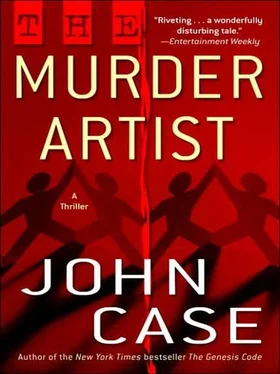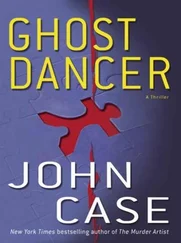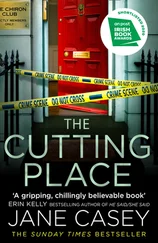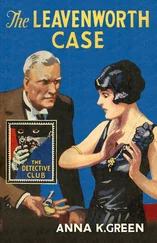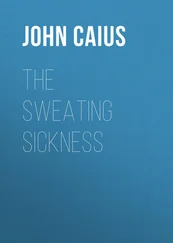“Why can’t this be done tomorrow?” Jack asks, his arm around Liz’s shoulder. “My daughter is exhausted.”
Shoffler wags his head. “I know. It’s very late – believe me, I’m aware of that. But I’m sure you understand that if there is any evidence here, anything that might provide a lead, we want to know about it right away. Not only can we act on it sooner, the longer we wait, the more the scene becomes contaminated. Plus, the team’s already here, outside, ready to go-”
“They’re outside right now?” I hear myself say. I don’t know why this bothers me, but it does.
Shoffler looks at his watch. “You mind if we get started?”
We sit there for an awkward moment, not knowing what to say, until Jack grabs the remote and turns on the television.
It’s impossible. What could be appropriate? He scowls as he blips from one hopeless choice to another. Baseball, crime shows, sitcoms, a Frontline program about the teen fashion industry.
“Dad,” Liz says.
Jack turns the television off. But when it goes dark with its electronic fizzle, we can hear them in the living room, conducting their search. It sounds like they’re taking the place apart. The counterpoint of conversation, the sounds of doors and drawers being opened, the audible evidence of the search – all this disturbs me. Even though I pushed for the search, it still feels like an invasion of privacy.
And suddenly the word invasion, which with its military connotations always seemed too forceful for this usage, seems perfect. Listening to these strangers pawing through my family’s belongings makes me feel as if I’m under attack, my territory violated. I hate the sound of their footsteps, the murmur of voices, the occasional spurt of laughter. It bothers me so much that I lift the remote from the end table, press the power button.
A mistake. I’ve caught the top of the ten o’clock news. There’s a collective intake of breath as the photo of the boys flashes on the screen, the announcer saying: “No news in the case of the missing Callahan twins…”
“Oh, God,” Liz says, as I punch the television off.
It’s almost a relief when a jittery redhead with bad skin and green fingernails arrives to take our fingerprints.
We all endure this woman’s bad temper as, one at a time, she calls us to the seat next to her. Using the coffee table as a platform, she presses our fingertips into an ink pad and then rolls out each one onto a prepared card. As she rolls my left pinky and then lifts it straight up from the file card, I can’t shake the feeling that there’s something sordid about the process. The card contains nothing but the minimal information required to identify me, that and the oblong blobs left by my fingertips, each with its own intricate pattern of whorls and lines.
I am given moistened towelettes to remove the ink from my hands while my mother takes my place. Maybe it’s because the Xanax has worn off, maybe it’s the half a dozen cups of coffee she’s downed since her arrival. Whatever the reason, she can’t seem to allow the technician to manipulate her fingers. She keeps twitching, moving the fingers herself. She apologizes and the tech issues an exaggerated sigh as she rips each messed-up card in two and tosses it into the wastebasket.
“Relax,” she tells my mother for what must be the tenth time, “let me move your finger. You’re rolling it – see, you’re smearing it.” Her tone of voice varies between accusing and patronizing. “Let me manipulate your fingers. Don’t roll…”
“I’m not rolling,” my mother says. “I’m trying not to.”
“You are .”
“Stop bullying her,” I say. “This is voluntary, correct?” My mother casts me a grateful look, but she’s beginning to sniffle.
“Let’s try again,” the fingerprint bitch says, filling out another card with yet another exasperated sigh.
This time, it goes well for a minute or two, but then, Mom twitches or something.
“You’re doing it again!”
My mother breaks down, begins to cry.
“Leave her alone,” my father says, getting to his feet.
“Excuse me,” the tech says, extricating herself from her seat and marching toward the door. “I don’t get paid enough to put up with this grief.”
“I’m sorry, Mom,” I say in an automatic tone.
“Do you want some water, Glenna?” my father asks in an anxious voice. “Alex – do you think we could get some water in here?”
“Sure.” I drag myself up from the couch and speak to the policeman posted in the hall. I realize – and the thought fills me with guilt – that I am tired of my parents, that I wish they would go home. Jack, too. I know they’ve come because they had to come and lend whatever support they can. I guess I’d be hurt if they hadn’t come. But it feels as if Liz and I have to take care of them.
Shortly after the policeman brings the water, Shoffler shows up. He stands in the threshold and raps his knuckles against the inside of the doorjamb. “Can I have a word with you, Alex? With you and Mrs. Callahan?”
There’s something about the look on Shoffler’s face that freezes my heart. First of all the latex gloves he’s wearing – they’re all wearing them – provide a chilling, clinical note. I stand up fast, as if there’s a rope attached to the top of my head and someone’s yanked me to my feet. “What is it?”
“You can speak freely right here,” my father says, with a little inclusive sweep of his hand. “We’re all family.”
Shoffler holds his hand up, palm toward my father like a cop stopping traffic. “Just the parents,” he says, with something that’s more like a grimace than a smile.
Liz is gray. We follow Shoffler upstairs into my study, where a uniformed officer, also gloved, sits on the corner of my desk holding a clipboard. Shoffler introduces the man: “This is Officer David Ebinger.”
Shoffler explains that it’s the custom, post-O.J., to have a single officer handle evidence, from tagging and bagging, to checking it in and out of the evidence room, to introducing it in court. “We have to establish chain of custody,” he says, in a matter-of-fact way, “in case there’s a court case somewhere down the line.”
We nod. We understand.
And then Shoffler closes the door. “We found something,” he says.
I can’t say a word.
On my desk sits a brown cardboard box about the size of a shoe box. Its flaps are open, splayed to the sides, and taped to it is a white tag with writing on it. Shoffler nods to Ebinger and then, using the eraser end of a pencil, extracts from the box a crumpled and badly stained piece of clothing. Once he’s got the whole thing clear of the box, I see what it is: a yellow T-shirt. The stain is reddish brown and I know instantly that it’s blood.
Liz moans. I put my arm around her and she leans in to me, turning her face in to my chest. She can’t look, but I can’t stop looking. Shoffler is trying to gently shake out the piece of cloth suspended from his pencil. It must have dried in this crumpled state, and it’s so stiff his efforts don’t accomplish much. For some reason I feel compelled to watch, filled with dread that the shirt will slip off the pencil and fall to the desk and that I must not let this happen. Finally the folds of fabric in one part of the bunched T-shirt lose their adhesion. It’s like a clenched fist opening, and suddenly I can see what the bunched folds hid, a palm-sized flat expanse of the T-shirt.
I don’t need to see any more.
What’s visible is the cartoonish drawing of a fish tail, the tail of what I know to be a whale, the interior of which I know to be printed with the word NANTUCKET.
Читать дальше
